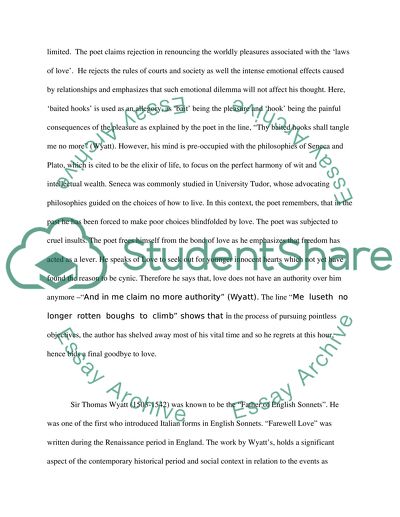Cite this document
(“Poetry Explication on Sir Thomas Wyatt the poem Farewell Love Research Paper”, n.d.)
Retrieved from https://studentshare.org/literature/1598764-poetry-explication-on-sir-thomas-wyatt-the-poem-farewell-love
Retrieved from https://studentshare.org/literature/1598764-poetry-explication-on-sir-thomas-wyatt-the-poem-farewell-love
(Poetry Explication on Sir Thomas Wyatt the Poem Farewell Love Research Paper)
https://studentshare.org/literature/1598764-poetry-explication-on-sir-thomas-wyatt-the-poem-farewell-love.
https://studentshare.org/literature/1598764-poetry-explication-on-sir-thomas-wyatt-the-poem-farewell-love.
“Poetry Explication on Sir Thomas Wyatt the Poem Farewell Love Research Paper”, n.d. https://studentshare.org/literature/1598764-poetry-explication-on-sir-thomas-wyatt-the-poem-farewell-love.


